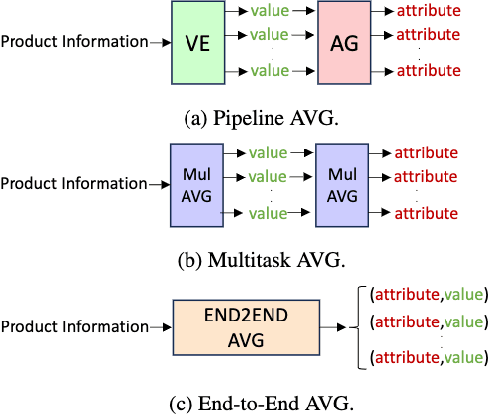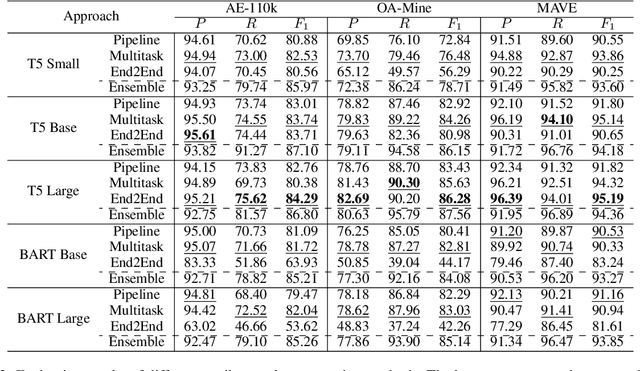Johann Gamper
An Empirical Comparison of Generative Approaches for Product Attribute-Value Identification
Jul 01, 2024



Abstract:Product attributes are crucial for e-commerce platforms, supporting applications like search, recommendation, and question answering. The task of Product Attribute and Value Identification (PAVI) involves identifying both attributes and their values from product information. In this paper, we formulate PAVI as a generation task and provide, to the best of our knowledge, the most comprehensive evaluation of PAVI so far. We compare three different attribute-value generation (AVG) strategies based on fine-tuning encoder-decoder models on three datasets. Experiments show that end-to-end AVG approach, which is computationally efficient, outperforms other strategies. However, there are differences depending on model sizes and the underlying language model. The code to reproduce all experiments is available at: https://github.com/kassemsabeh/pavi-avg
Model-Based Diagnosis with Qualitative Temporal Uncertainty
Feb 27, 2013


Abstract:In this paper we describe a framework for model-based diagnosis of dynamic systems, which extends previous work in this field by using and expressing temporal uncertainty in the form of qualitative interval relations a la Allen. Based on a logical framework extended by qualitative and quantitative temporal constraints we show how to describe behavioral models (both consistency- and abductive-based), discuss how to use abstract observations and show how abstract temporal diagnoses are computed. This yields an expressive framework, which allows the representation of complex temporal behavior allowing us to represent temporal uncertainty. Due to its abstraction capabilities computation is made independent of the number of observations and time points in a temporal setting. An example of hepatitis diagnosis is used throughout the paper.
 Add to Chrome
Add to Chrome Add to Firefox
Add to Firefox Add to Edge
Add to Edge